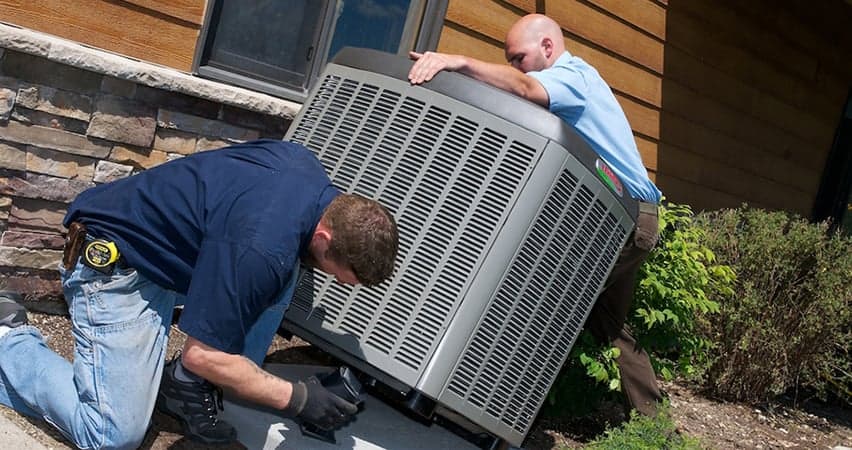


How do you know if it’s really time to replace your air conditioner? What should you look for in a new AC unit? We’ll answer those questions and more in this guide to AC replacement.
A new central HVAC unit can cost anywhere from $3,000 to $7,000 for a 2,000-square-foot home. If you’re installing central air in a house, apartment or office that doesn’t have the proper ductwork, you’ll need to add the price of duct installation. When you’re replacing an existing unit, you usually won’t need to mess with the ducts. You may need ductwork if you’re upgrading to a larger unit, though. An older house may also benefit from having ductwork done. Newer ducts are better insulated and more efficient. You might find that your AC works better and your power bills go down when you replace your ducts. You may need to upgrade your circuit breaker panel when you’re replacing your air conditioner. An older panel may not be able to handle the demand of the newer HVAC system.
Some people believe that bigger is better. Realistically, a higher-capacity unit won’t necessarily cool your house more efficiently. A bigger unit may cool your house quickly, but then it will turn off. As soon as it does, the heat from outside starts to seep back in. A unit that’s the right size will cycle fully, cooling your house more slowly but helping it maintain an even temperature. It’s more efficient to operate an air conditioner this way than having it provide rapid cooling. The rapid on/off cycle can also cause your air conditioner to wear out quickly. Cooling capacity is rated in British Thermal Units, or BTUs. The size of an AC unit is measured in tons. This is not the same unit of measurement that’s used for weight. The tonnage of an air conditioner refers to its ability to cool a certain number of BTUs per hour. One ton can cool 12,000 BTUs in one hour. There are a few ways to calculate what size HVAC unit is ideal for your home. These calculations will give you a ballpark range, but a professional AC technician will be able to give you a more accurate idea. To get an idea of the tonnage necessary for your home, multiply your house’s square feet by 30. Divide that total by 12,000. Subtract one from that number. Using this calculation, a 1,200-square-foot-home would need a 2-ton unit. If you live in an extremely hot climate, leave out the final step. In that case, the same home would be better off with a 3-ton unit. If one of your rooms is exposed to more sun than the others, you may think that you need a larger unit to cool it more effectively. An HVAC specialist can help you make that decision. In some cases, you might just need more ducts and vents in that room.
An air conditioner’s SEER rating describes its maximum energy efficiency. Units with higher SEER ratings are more efficient, but they may not be ideal for your property. Modern HVAC units have SEER ratings that range from 13 to 25. Older units averaged closer to 8 or 9 SEER. Therefore, most air conditioners that are installed today surpass older HVAC systems in efficiency. However, they’re not guaranteed to be as efficient as the number at which they’re rated. That’s just the maximum. If you don’t run your unit properly, you won’t see its maximum potential. That means that if you’re constantly changing the thermostat or don’t have sufficient insulation, you won’t get the maximum SEER out of your air conditioner. The SEER value is like the MPG rating on your car. It changes depending on the operation. Their are many things to consider when looking for an AC Replacement in Houston and your HVAC specialist will help you determine how to get the most energy-efficient air conditioner for your home. To determine this, you must take into account your house’s ductwork, insulation, sun exposure, and size. You’ll also need to address your budget and lifestyle.
Licensed and Insured
H.S. Hill MPL 37466 & Kirk Brandli TACLB53102E
All prices are subject to change.